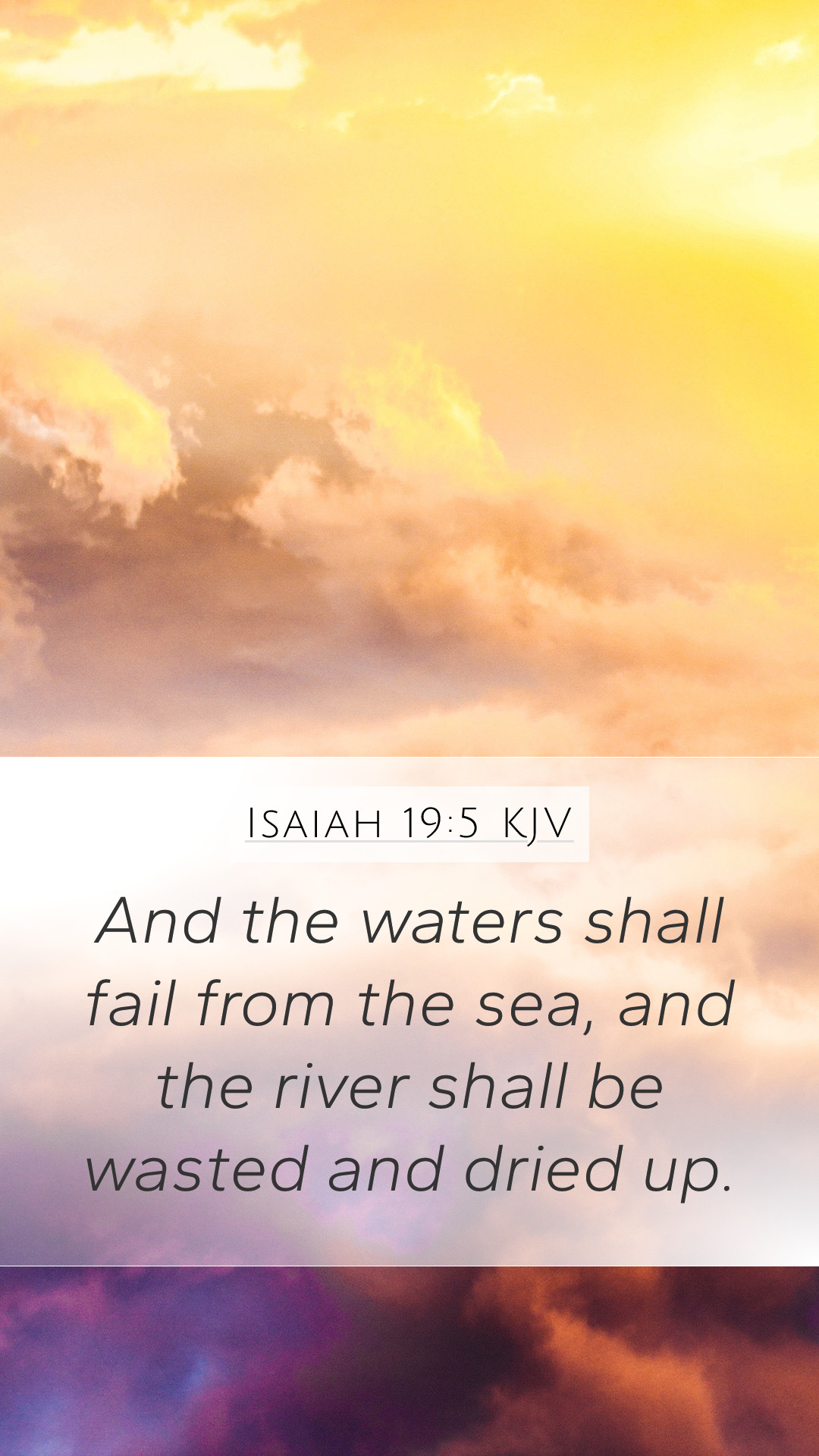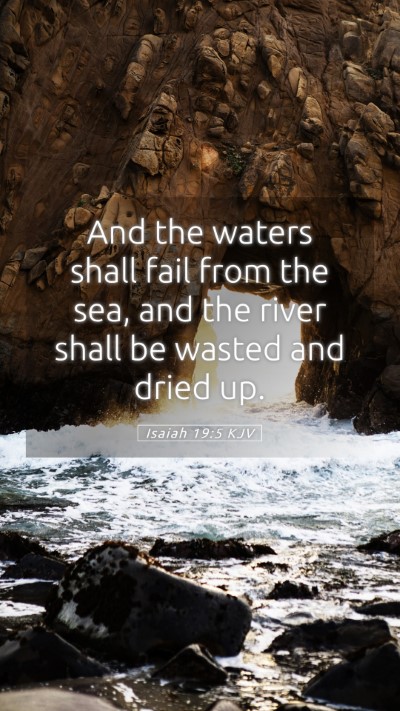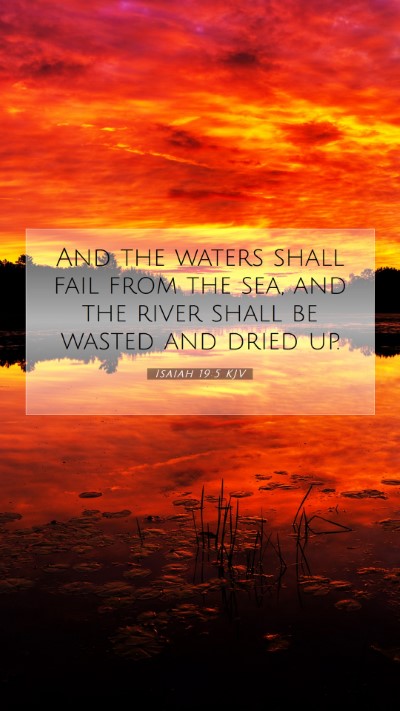Understanding Isaiah 19:5
In Isaiah 19:5, the prophet delivers a poignant message regarding the fate of the Nile River and Egypt during times of distress. This verse serves as a metaphor illustrating the broader implications of judgment and upheaval. Below, we delve into the bible verse meanings and provide a comprehensive Bible verse commentary by drawing insights from various public domain commentaries.
Verse Text
"And the waters shall fail from the sea, and the river shall be wasted and dried up."
Context of the Verse
This verse is situated within a larger prophetic context where God, through Isaiah, is announcing coming judgment upon Egypt due to its idolatry and cruelty. The failures of the Nile River symbolize divine judgment that will affect the economy, livelihood, and spiritual condition of the Egyptians.
Insights from Public Domain Commentaries
-
Matthew Henry's Commentary:
Henry emphasizes the significance of the Nile as a life source for Egypt, asserting that its drying up indicates a severe judgment from God. The metaphor extends beyond a single physical phenomenon to represent the collapse of the nation's reliance on false gods and earthly security.
-
Albert Barnes' Notes:
Barnes elaborates on the literal and metaphorical interpretations of this verse, highlighting how the drying of the waters illustrates not just drought but a broader spiritual desolation. He affirms that the Egyptians' trust in the Nile as a deity will prove futile when God intervenes.
-
Adam Clarke's Commentary:
Clarke mentions how this judgment serves as a message not only to Egypt but to surrounding nations. The Nile, being central to Egypt's culture and economy, underscores the drastic impact of God’s wrath. Clarke discusses the prevalent agricultural practices and how a return to humility and reverence towards God could potentially avert such judgments.
Thematic Analysis
Thematically, this verse draws attention to the consequences of idolatry, human arrogance, and the ultimate sovereignty of God. It illustrates a significant principle found throughout Scripture: reliance on worldly systems and false deities leads to inevitable failure. This principle has applications for contemporary readers in recognizing what they place their trust in.
Application of Isaiah 19:5 in Daily Life
The drying up of the Nile serves as a reminder that all secular powers, securities, and comforts can vanish. Application of this Bible verse encourages individuals to reflect on their own lives and consider whether they lean on personal achievements, relationships, or material possessions rather than on God. The challenge lies in recognizing dependence on the divine as a source of strength, sustenance, and hope.
Cross References
Isaiah 19:5 is related to several other Scriptures that evoke similar themes:
- Exodus 7:14-24: The plague of blood, where the Nile turns into blood, demonstrating God's power over Egypt.
- Jeremiah 46:7-8: Descriptions of Egypt coming as a river, and being compared to a rising flood, symbolizing chaos.
- Isaiah 11:15: Prophecy of God’s sovereign control over water pathways, affirming His authority.
Conclusion
In essence, Isaiah 19:5 serves as a profound warning about the fragility of human systems when they stand opposed to God. Through diligent Bible study insights and understanding the historical context of Bible verses, readers can uncover the rich theological implications that inform modern faith and practice. Whether engaging in Bible study groups or personal reflection, the importance of this verse remains relevant across ages, providing both caution and encouragement.


